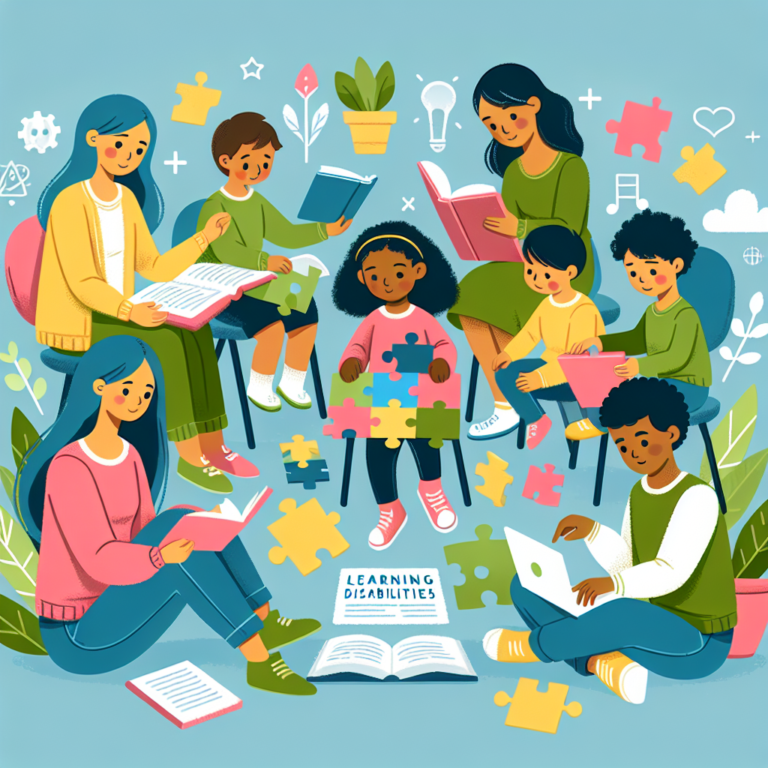
Empathy and Exhaustion: The Dual Emotions of Parenting a Child with Disabilities
Introduction
Every parent has a unique journey, but for those parenting a child with disabilities, this journey often encompasses a landscape rich with intense emotions. Among these, empathy and exhaustion emerge as defining experiences. The profound connection parents feel for their children with disabilities fuels empathy, while the relentless demands of caregiving can lead to profound exhaustion. Understanding empathy and exhaustion: the dual emotions of parenting a child with disabilities is crucial not only for parents but also for supporting systems, mental health professionals, and communities at large.
As we delve deeper into these dual emotions, we will explore research-backed insights, real-world narratives, and practical strategies to embrace the journey with insight, resilience, and hope.
The Nature of Empathy in Parenting
What is Empathy?
At its core, empathy is the ability to understand and share the feelings of another. In the context of parenting a child with disabilities, empathy is a powerful tool that fosters emotional connection and support. Empathy allows parents to perceive their child’s experiences, challenges, and triumphs from their perspective, creating a nurturing environment.
The Role of Empathy in Parenting
Empathy drives parents to advocate for their children’s needs, celebrate their successes, and provide emotional support during difficult times. Notably, parents of children with disabilities often report a heightened sense of empathy, both for their child and for others in similar situations.
It’s essential to recognize how empathy can serve as a source of strength, enabling parents to navigate the complexities of their child’s needs while fostering a positive self-image in their child. In a study, parents noted how their ability to empathize with their child’s struggles led to deeper emotional connections, reinforcing resilience in both themselves and their children.
Case Study: Sarah and Her Son Tim
Sarah, a mother of an eight-year-old boy with autism, embodies the essence of empathy. She recalls the moment she realized Tim was different during his toddler years. Understanding the world through Tim’s eyes became crucial; she learned to celebrate his unique achievements while advocating for him in educational settings.
Sarah’s instinctual need to connect with Tim’s experiences—his frustrations in social situations and his joy in creative storytelling—has cultivated a close bond. This empathetic connection not only comforts Tim but also gives Sarah the emotional strength to face challenges.
Analysis of Sarah’s Experience
Sarah’s narrative illustrates the profound impact of empathy on parenting a child with disabilities. By fostering understanding and connection, parents like Sarah can champion their children’s unique identities while remaining anchored in their daily struggles.
The Weight of Exhaustion
Understanding Exhaustion
Contrary to the nurturing aspect of empathy, exhaustion is the emotional and physical toll that can arise from the demands of caregiving. Parents often face a whirlwind of responsibilities, from doctor’s appointments to therapy sessions, leading to a feeling of being overwhelmed.
Emotional Exhaustion
Emotional exhaustion occurs when parents feel drained and unable to provide the necessary emotional regulation for themselves or their children. According to recent surveys, nearly 70% of parents of children with disabilities report symptoms of burnout, signaling a critical need for support systems.
Case Study: David and His Daughter Lily
David, a single father to Lily, who has cerebral palsy, frequently experiences emotional exhaustion. Balancing work while managing Lily’s therapy schedules has left him feeling depleted. Although he strives to maintain a positive atmosphere at home, the relentless demands often overshadow his well-being.
David reflects on incidents when fatigue made it difficult for him to show empathy. He recalls a moment when Lily sought comfort after a tough day at school, but he was too exhausted to provide the nurturing response she needed.
Analysis of David’s Experience
David’s situation poignantly showcases the challenges of sustaining empathy amidst exhaustion. The pressures of balancing various responsibilities can often hinder parents’ abilities to respond to their children’s emotional needs, emphasizing the importance of establishing self-care routines.
The Balancing Act: Empathy Vs. Exhaustion
Navigating the dual emotions of empathy and exhaustion: the dual emotions of parenting a child with disabilities requires a delicate balancing act. Understanding how these emotions interplay can empower parents to foster compassion without sacrificing their well-being.
Strategies for Nurturing Empathy While Managing Exhaustion
Establish Boundaries: Learning to say “no” to additional commitments can help prevent burnout. Prioritizing essential tasks allows parents to maintain their emotional reserves for their children.
Seek Support: Establishing a support network—including family, friends, and professional services—can provide necessary relief. Engaging in community groups can foster connections with others experiencing similar challenges.
Practice Self-Care: Engaging in self-care is paramount. Whether through physical exercise, hobbies, or relaxation techniques, prioritizing self-care can rejuvenate a parent’s spirit and foster their ability to empathize.
Mindfulness and Reflection: Practicing mindfulness can assist parents in recognizing their emotional state. Reflecting on daily challenges and successes helps maintain perspective, enhancing the ability to empathize with one’s child.
- Celebrate Small Wins: Acknowledging minor victories—whether in a child’s progress or personal growth—can shift focus from overwhelming challenges to positive experiences, preserving emotional energy.
Table: How to Balance Empathy and Exhaustion
| Strategy | Benefits | Implementation Tips |
|---|---|---|
| Establish Boundaries | Reduces burnout | Prioritize tasks, learn to say no |
| Seek Support | Provides relief and understanding | Join support groups, engage family |
| Practice Self-Care | Enhances well-being | Schedule time for personal interests |
| Mindfulness and Reflection | Maintains emotional awareness | Regular journaling or meditation |
| Celebrate Small Wins | Fosters a positive mindset | Daily gratitude practice |
Moving Forward: Embracing Dual Emotions
Finding Fulfillment in the Journey
While connecting empathy with exhaustion can seem counterintuitive, parents must remember they are not alone. Numerous resources are available for counseling, education, and peer support. The journey, though challenging, can be deeply fulfilling and rich with growth.
The Power of Storytelling
Sharing personal stories can be immensely therapeutic for parents. These narratives often serve to highlight not just the struggles but also the triumphs, helping to create a supportive community that values both empathy and the resilience to overcome exhaustion.
Empowering Resilience in Children
When parents model empathy and demonstrate coping strategies for exhaustion, they cultivate resilience in their children. This not only helps children with disabilities develop self-advocacy skills but also establishes healthy emotional patterns, which can enhance their development.
Conclusion
As we conclude our exploration of empathy and exhaustion: the dual emotions of parenting a child with disabilities, it is essential to recognize the intertwined nature of these feelings. Empathy nourishes emotional bonds that empower both parents and children, while managing exhaustion ensures that these connections can be sustained over time.
Through self-awareness, support, and self-care, parents can navigate their unique journeys with grace, courage, and compassion. The goal is not to eliminate exhaustion or to be perfectly empathetic; rather, it is to understand and embrace this complex emotional landscape. The path may be difficult, but it is also lined with opportunities for growth, connection, and unconditional love.
FAQs
1. What are the signs of emotional exhaustion in parents of children with disabilities?
Emotional exhaustion may manifest as persistent fatigue, irritability, feeling overwhelmed, reduced motivation, and diminished emotional engagement. Recognizing these signs is crucial for seeking help and implementing coping strategies.
2. How can I find support as a parent of a child with disabilities?
Consider joining local or online support groups, seeking counseling from professionals familiar with disabilities, or connecting with parents through community organizations. The shared experiences can provide intricate insights and emotional relief.
3. Is it okay for parents to take time for themselves?
Absolutely! Self-care is essential for parents to recharge emotionally and physically. Taking time for personal interests, hobbies, or relaxation can enable parents to return to their caregiving roles with renewed energy.
4. How can I help my child cope with their vulnerabilities?
Fostering open communication is key. Encourage your child to express their feelings, validate their experiences, and provide emotional support. Identifying coping strategies together can empower them to handle challenges.
5. Are there resources available for managing parent burnout?
Yes, numerous resources exist, including books, online forums, and support groups. Local organizations often offer workshops or counseling tailored to parents of children with disabilities.
In conclusion, the journey of parenting a child with disabilities presents an intricate dance of empathy and exhaustion. By acknowledging these emotions and seeking balance, parents can create nurturing environments that foster growth and understanding, paving the way for resilience and deeper connections with their children.










